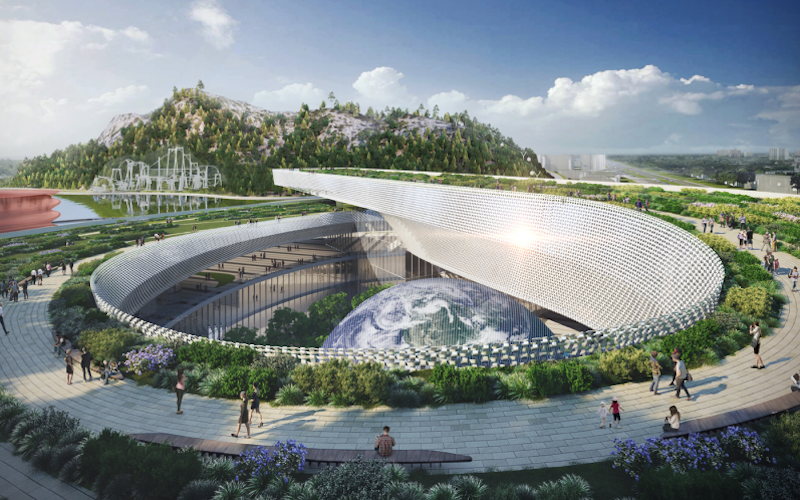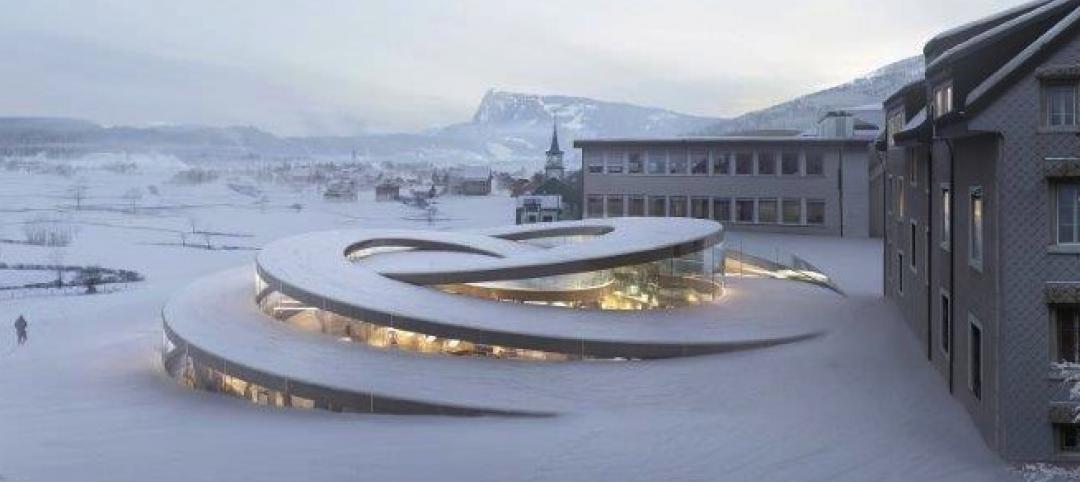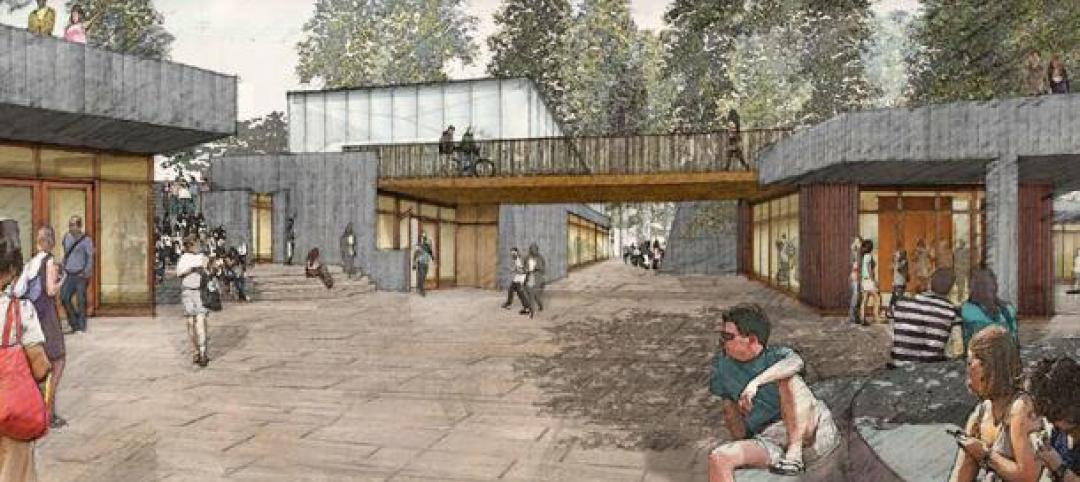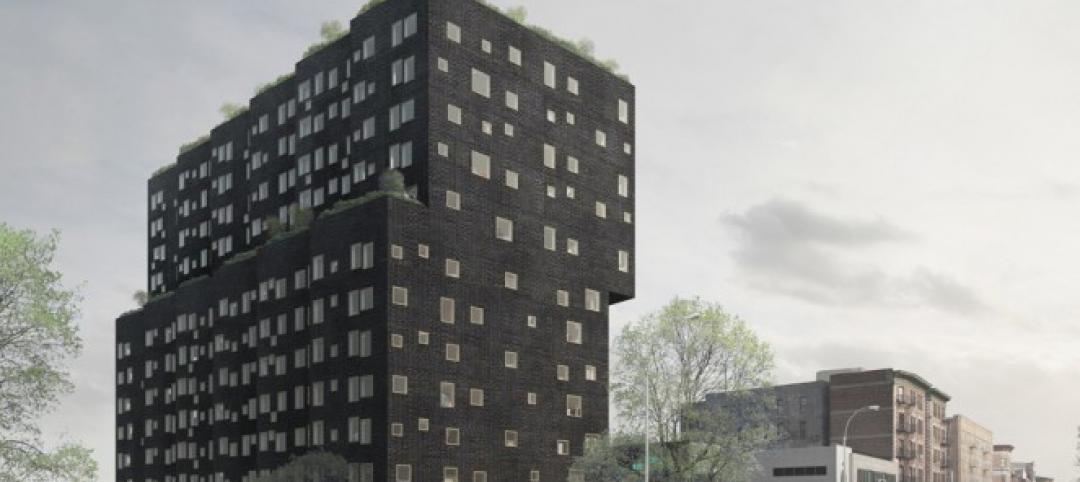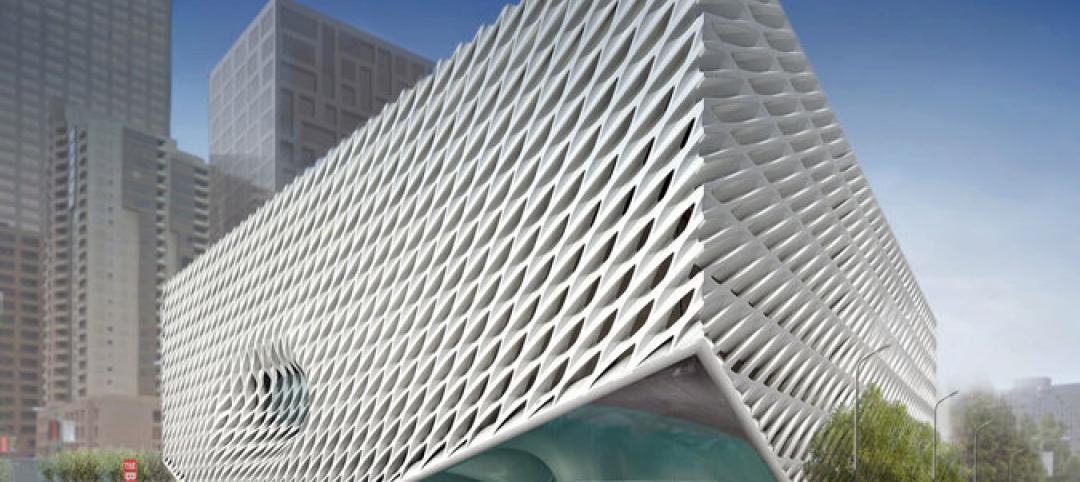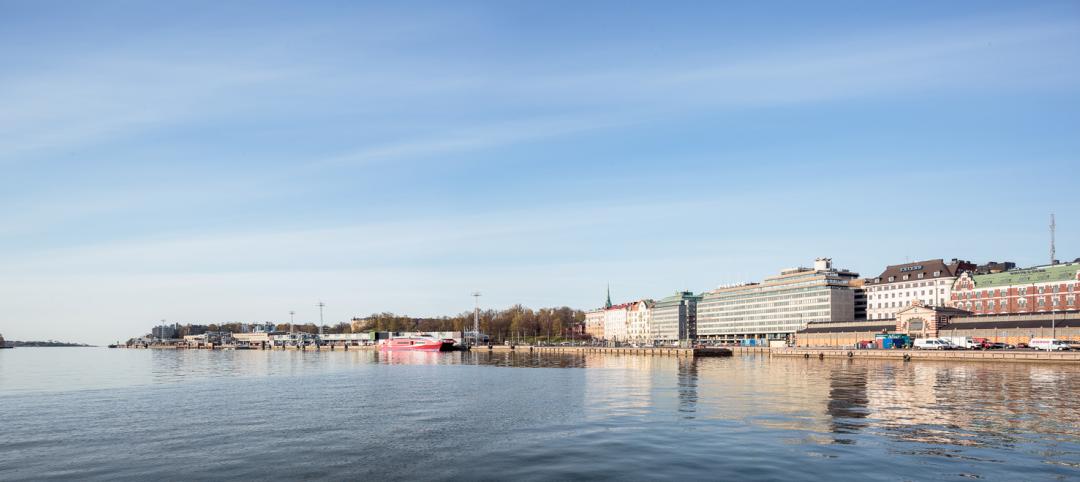Shan shui is a Chinese expression that, roughly translated, means the union of mountain and lake. It is this phrase that proved to be the inspiration for the new Suzhou Science & Technology Museum designed by Perkins+Will.
The museum will become the new centerpiece of a new cultural district in Shishan Park, located about 62 miles northwest of Shanghai. The museum sits at the foot of Lion Mountain and next to Shishan Lake (hence the shan shui inspiration) and will encompass 600,000 sf of space. Included in this space is a 66,700-sf industrial exhibition hall, where exhibits will highlight the role of industrial development.
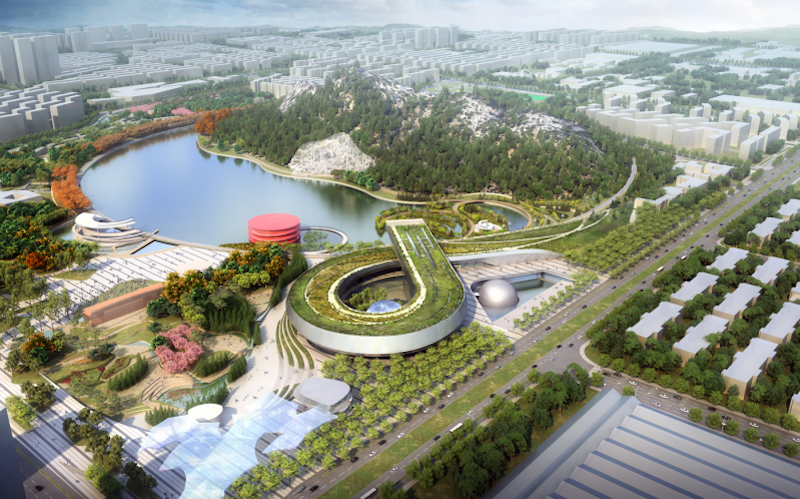 Rendering courtesy of Perkins+Will.
Rendering courtesy of Perkins+Will.
The ribbon-like form of the museum emerges from the base of Lion Mountain and twists upward before it turns back on itself to cantilever out over the edge of Shishan Lake. Several man-made, teardrop-shaped, planted Eco Islands will stipple the lake. These islands will act as a filtration system and be connected by a walkway to the museum.
Visitors can arrive at the museum from several approaches. Those arriving by subway will be guided into the museum along a shallow ramp to the circular promenade that surrounds the park. Those coming by car or bus will enter through a formal plaza with reflecting pools and gathering spaces dubbed the “Discovery Court.”
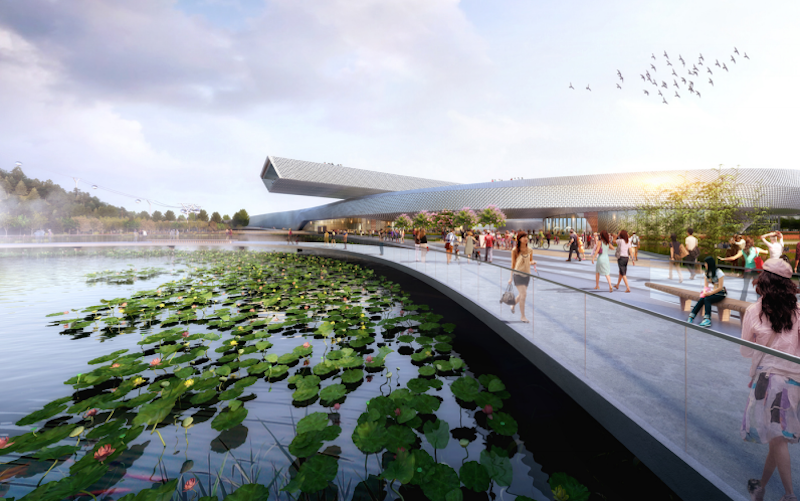 Rendering courtesy of Perkins+Will.
Rendering courtesy of Perkins+Will.
Once visitors enter the museum, via whichever approach they desire, they will be greeted by a three-story atrium adjacent to a sunken water-filled courtyard that includes several small planted islands meant to reflect the Eco Islands in Shishan Lake.
Each level within the museum has access to natural daylight. The museum’s third level comprises “Lion Mountain Terrace,” which stretches out over the Eco Islands and frames Lion Mountain in the distance. This isn’t the only way the museum highlights sustainability and the environment, though.
A “Life-Giving Forest” outside the museum provides an air filtration buffer to the city and a unique place for outdoor exhibits. Public pedestrian walkways where the museum meets the lake wind through the Eco Islands and the wetlands with signage that guide guests to explore water purification, storm water management, and sustainable living.
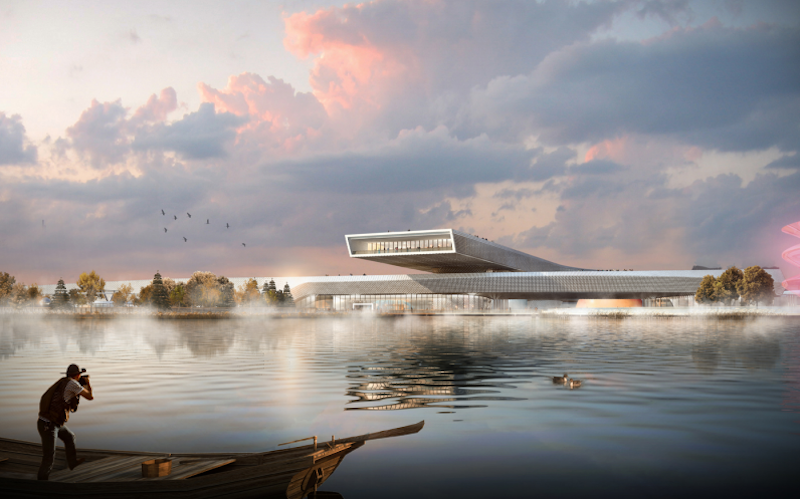 Rendering courtesy of Perkins+Will.
Rendering courtesy of Perkins+Will.
A 3D metal mesh skin transitions from opaque to transparent to control daylight and solar gain and permeable paving systems and bioswales allow rain water to percolate directly into the ground of be directed toward the planted vegetation to be filtered naturally. Additionally, the construction of wetlands and Eco Islands will improve the water quality of Shishan Lake and make it a healthier habitat for wildlife and visitors.
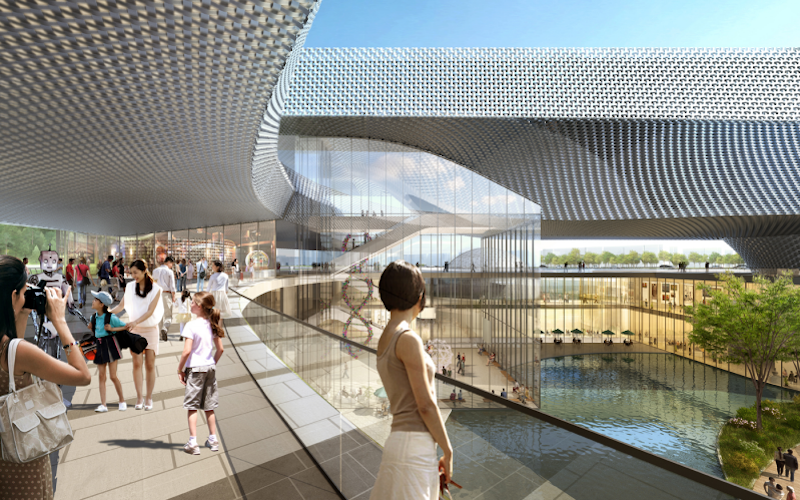 Rendering courtesy of Perkins+Will.
Rendering courtesy of Perkins+Will.
“Our design recognizes the importance of Suzhou in China’s commercial history, and underscores its role at the forefront of China’s emergence as a technology leader and innovator,” says Ralph Johnson, Global Design Director of Perkins+Will.
Perkins+Will previous design work in China includes the Shanghai Natural History Museum, which opened in 2015.
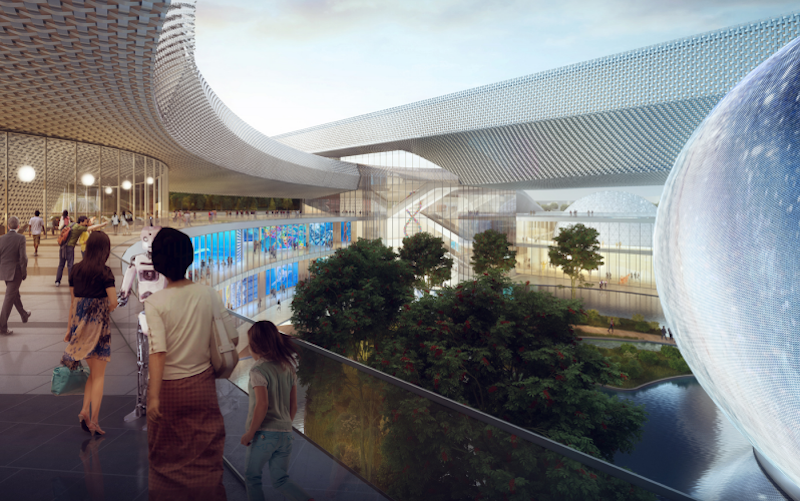 Rendering courtesy of Perkins+Will.
Rendering courtesy of Perkins+Will.
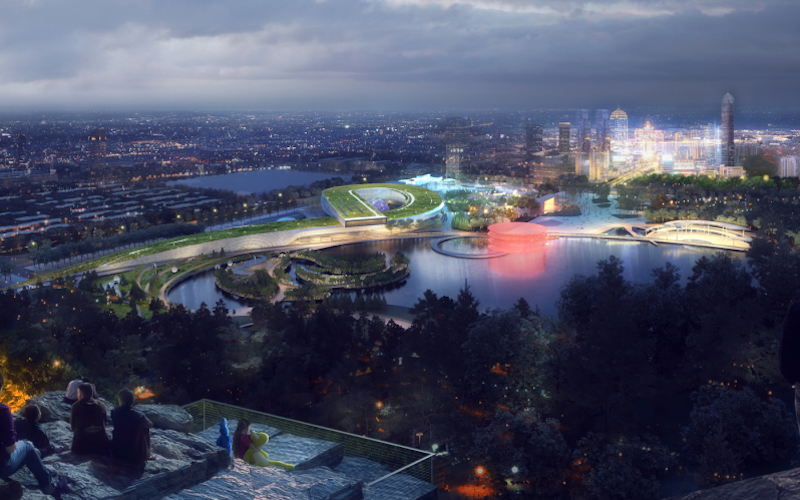 Rendering courtesy of Perkins+Will.
Rendering courtesy of Perkins+Will.
Related Stories
| Jun 18, 2014
Arup uses 3D printing to fabricate one-of-a-kind structural steel components
The firm's research shows that 3D printing has the potential to reduce costs, cut waste, and slash the carbon footprint of the construction sector.
| Jun 16, 2014
6 U.S. cities at the forefront of innovation districts
A new Brookings Institution study records the emergence of “competitive places that are also cool spaces.”
| Jun 13, 2014
First look: BIG's spiraling museum for watchmaker Audemars Piguet
The glass-and-steel pavilion's spiral structure acts as a storytelling device for the company's history.
| Jun 12, 2014
Tod Williams Billie Tsien Architects' design selected for new UCSC facility
The planned site is a natural landscape among redwood trees with views over Monterey Bay, a site that the architects have called “one of the most beautiful they have ever worked on.”
| Jun 12, 2014
Austrian university develops 'inflatable' concrete dome method
Constructing a concrete dome is a costly process, but this may change soon. A team from the Vienna University of Technology has developed a method that allows concrete domes to form with the use of air and steel cables instead of expensive, timber supporting structures.
| Jun 11, 2014
David Adjaye’s housing project in Sugar Hill nears completion
A new development in New York's historic Sugar Hill district nears completion, designed to be an icon for the neighborhood's rich history.
| Jun 9, 2014
Green Building Initiative launches Green Globes for Sustainable Interiors program
The new program focuses exclusively on the sustainable design and construction of interior spaces in nonresidential buildings and can be pursued by both building owners and individual lessees of commercial spaces.
| Jun 9, 2014
Eli Broad museum files $19.8 million lawsuit over delays
The museum, meant to hold Eli and Edythe Borad's collection of contemporary art, is suing the German company Seele for what the museum describes as delays in the creation of building blocks for its façade.
| Jun 4, 2014
Want to design a Guggenheim? Foundation launches open competition for proposed Helsinki museum
This is the first time the Guggenheim Foundation has sought a design through an open competition. Anonymous submissions for stage one of the competition are due September 10, 2014.
| May 29, 2014
7 cost-effective ways to make U.S. infrastructure more resilient
Moving critical elements to higher ground and designing for longer lifespans are just some of the ways cities and governments can make infrastructure more resilient to natural disasters and climate change, writes Richard Cavallaro, President of Skanska USA Civil.


